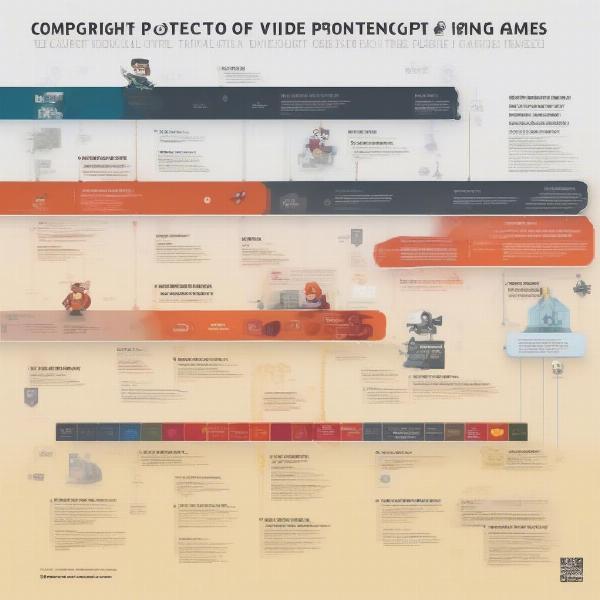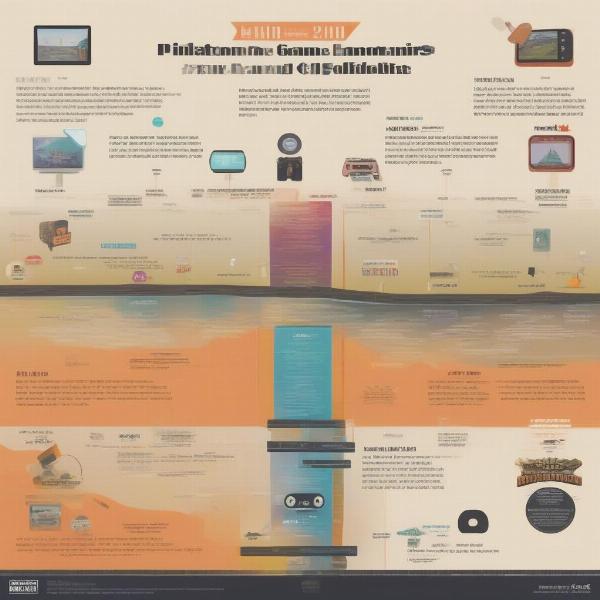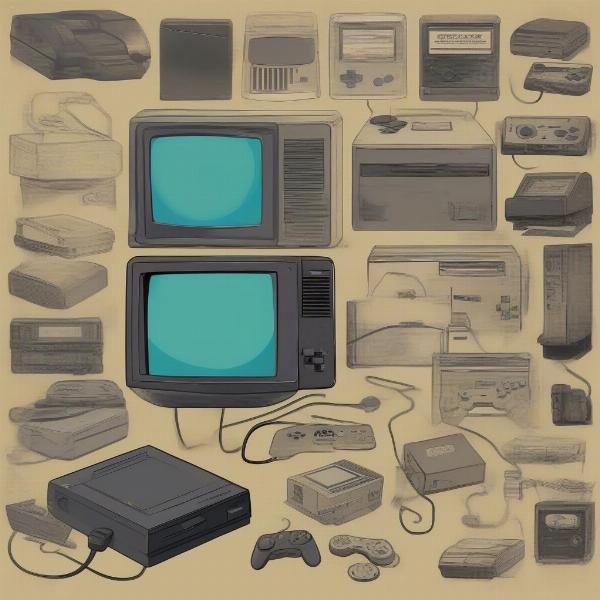Here at SupremeDuelist.blog, we’re always diving deep into the fascinating world of gaming. Today, we’re tackling a question that often pops up amongst enthusiasts: can video games enter the public domain? It’s a complex issue tied to copyright law, intellectual property, and the very nature of game creation, and understanding it is key to appreciating the longevity of our favorite digital worlds.
The idea of video games becoming freely available for anyone to use, modify, and distribute might seem like a distant dream, or perhaps a terrifying prospect for game developers. This article aims to unravel the intricacies of copyright law as it applies to games, exploring the conditions that might eventually lead them into the public domain. We’ll also discuss the legal and practical implications this could have on the gaming industry as a whole.
Understanding Copyright in Video Games
Copyright is a legal right granted to creators of original works, such as books, music, and, importantly for us, video games. This right gives the copyright holder exclusive control over the use, distribution, and modification of their work. It’s a crucial mechanism that protects the creative output of game developers and publishers, ensuring they receive the benefits from their hard work. But the clock doesn’t tick forever; copyright protection is not infinite.
A video game isn’t just one thing; it’s a collection of different elements each potentially protected by copyright. These include:
- The source code: This is the underlying programming language that dictates how the game runs.
- The visual assets: This includes character designs, level layouts, and any other graphical content.
- The audio assets: This encompasses music, sound effects, and voice acting.
- The narrative: The story, dialogue, and characters developed for the game.
All these aspects are initially under copyright, often held by the game’s developer or publisher. Copyright protection generally lasts for the life of the author plus 70 years, however, the rules are different for works made for hire, where the copyright protection extends 95 years from publication or 120 years from creation, whichever expires first. This is where things start to get complicated in the context of video games.
 Video game copyright protection timeline
Video game copyright protection timeline
What is Public Domain?
The public domain refers to works that are no longer protected by copyright law. These works are free for anyone to use, modify, or distribute without seeking permission or paying royalties. Imagine a world where classic arcade games are as free as air, or you can create new stories within your favorite old RPG; that is the promise of the public domain. This concept is vital for cultural heritage, enabling the reuse and building upon of creative works.
The Path to Public Domain for Video Games
So, Can Video Games Enter Public Domain? The short answer is yes, eventually. The longer answer is that it’s a long and complex process.
The Time Factor
The primary factor that determines when a video game will enter the public domain is time. As mentioned earlier, copyright protection typically lasts a specific period. For instance, if the game was produced by a single author or a partnership, copyright generally lasts for 70 years after the death of the author. However, most of today’s games are made under “work-for-hire” agreements where publishers own the copyright which in this case extends for 95 years from publication or 120 years from creation whichever expires first.
Why Doesn’t This Happen More Often?
The long durations of copyright, especially in the context of modern games developed by teams, mean that most video games won’t be in the public domain anytime soon. Also, the gaming industry’s nature also makes it challenging. Unlike a single book with one clear author, a game has multiple contributors: artists, programmers, writers, and composers. Determining which contributor’s lifespan should be used to calculate copyright expiration is complicated by the fact that many rights are owned by publishing entities.
The “Work-for-Hire” Complication
Most video games are created under “work-for-hire” arrangements, meaning the copyright belongs to the company that commissions the work, not the individual creators. As such, the copyright duration will be much longer and the date when games created under work-for-hire will enter the public domain is more distant. This significantly delays the possibility of games entering the public domain because they are subject to the work-for-hire copyright terms, not individual creator copyright terms.
“The legal landscape surrounding game copyright is notoriously complex,” notes Eleanor Vance, a copyright attorney specializing in digital media. “It’s often difficult to pinpoint when, or even if, many modern games will enter the public domain given the extended durations and work-for-hire arrangements.”
 Video game public domain timeline visualization
Video game public domain timeline visualization
What Happens When a Game Enters Public Domain?
When a game finally enters the public domain, anyone is free to copy, distribute, modify, or use its assets without seeking permission. This freedom opens up many exciting possibilities, including:
- Preservation: Classic games that might otherwise be forgotten can be preserved and enjoyed by future generations.
- Remastering and Remaking: Fans can create their own versions of older games with enhanced graphics or new gameplay features, creating opportunities for fan games.
- Modding Communities: The modding communities will thrive by allowing for greater modifications.
- Educational Purposes: Old games can be utilized for educational programs, allowing for learning in an interactive way.
- Creative Reimagining: The original game’s assets can be reused to create entirely new games or media experiences.
Will We See a Flood of Public Domain Games?
While the potential for public domain is significant, we’re not likely to see a deluge of iconic games entering the public domain anytime soon. The time factor and work-for-hire arrangements make the process extremely slow. However, when games eventually do enter the public domain, it will be transformative for game preservation, modding, and creative gaming in general.
Common Questions About Video Games and Public Domain
When will the first video games enter public domain?
The very early arcade games and computer games developed during the late 1970s and early 1980s, that were not made under work-for-hire agreements and the authors are known could start entering the public domain in the coming decades, assuming the authors are deceased and the 70 year rule applies. However, the majority of games from the late 1980s onward are likely protected by “work-for-hire” agreements, pushing their public domain entrance further into the future.
Does game music enter public domain separately from the game?
Yes, audio assets such as music and sound effects have separate copyrights and can enter public domain under different rules if created by different individuals. Therefore, the game and the music may enter public domain at separate times.
Can I use a game asset if I don’t plan to sell it?
Even if you do not plan to sell or gain profit, if the game asset is still copyrighted and you do not have permission, it is not allowed to copy and distribute those copyrighted materials.
Does the concept of fair use apply to games?
Yes, fair use (or fair dealing in some countries) allows limited use of copyrighted material for purposes such as criticism, comment, news reporting, teaching, scholarship, and research. However, fair use rules are complicated and context-dependent, and you should seek expert legal advice if you are unsure about whether your use qualifies as fair use.
How does this affect indie games?
Indie developers are often in different situations. Many operate as individuals or small teams, and therefore the copyright might have a shorter term based on the individual author. However, indie developers may also use “work-for-hire” agreements for contractors, which complicates copyright rules.
Are there examples of games in the public domain?
Not yet in any meaningful way. While there may be small examples of ultra-niche games from the early era without clear copyright ownership, the big names of the gaming world are still under copyright protection. The legal landscape around those early titles is often murky and difficult to navigate.
“Understanding copyright law is essential for anyone involved with creating or using video games,” says Dr. Kenji Tanaka, a professor of game design and media law. “It helps to protect creators and also allows for the growth and evolution of creative works through the public domain system.”
 Game preservation public domain concept
Game preservation public domain concept
Conclusion
The question, “can video games enter public domain?” has a complex and multifaceted answer. While the answer is ultimately yes, the reality is that we are still a long way from seeing many iconic video games become available under public domain. The work-for-hire agreements, along with the long copyright terms, mean that most games are still under copyright for several decades to come.
As always, SupremeDuelist.blog will continue to explore the exciting developments in the gaming world. Keep checking back for more analysis and deep dives into the games you love. Whether it’s breaking down complex legal issues or celebrating gaming’s rich history, we’ve got you covered. We hope this article was insightful and that you learned more about the complex rules that govern the world of video games.
Leave a Reply